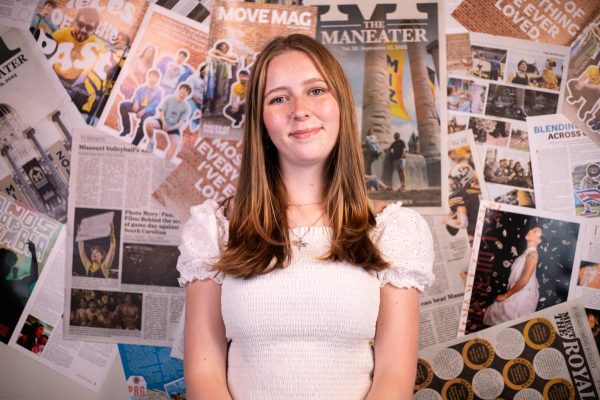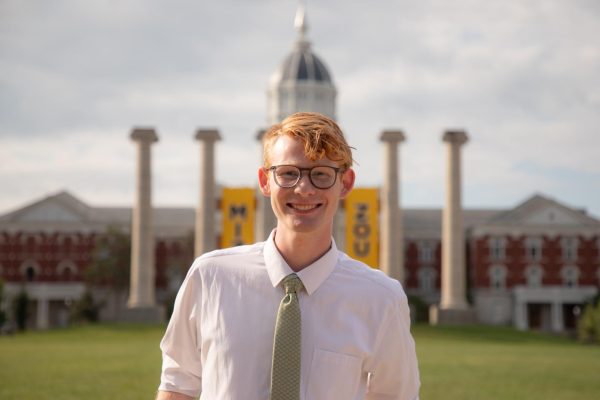From Monday, Sept. 29 to Sunday, Oct. 5, Columbia nonprofit Local Motion hosted a week of events aimed at teaching residents the challenges non-drivers face by encouraging people not to drive for a week. This is Local Motion’s second year participating in the national Week Without Driving movement.
Local Motion’s Chief Development Officer Josh Parshall envisions a city accessible to everyone, not just those who have a car. This means having better sidewalks, running buses more often and increasing the number of protected bike lanes.
“What we see is parking lots eating up a bunch of our urban space, both making it harder to walk, bike or otherwise get around, and creating other problems like urban heat island effect,” Parshall said.
Parshall pointed out that prioritizing cars and parking lots is like a chain effect, causing other issues down the road.
“We have way too much parking, it exacerbates other problems,” Parshall said. “So there are changes we need to make to really encourage people to try other means of getting around. And you’ve got to make those other means so convenient, so easy and so enjoyable that people are going to get swayed.”
Parshall also mentioned the need for change on a local government level. In a city that lacks other means of transportation, many people have no choice but to drive. Local Motion hopes to change infrastructure through local government, which is also a goal of the Week Without Driving.
“The targets for the national campaign really are decision makers and elected officials,” Parshall said. “Ideally, we’d have participation by city staff, by elected officials, and we’re lucky in Columbia to have a number of elected officials who really understand the need for this stuff, and who you can see on a pretty regular basis, walking or biking.”
One such official was Jacque Sample, a Ward Three council member who went on a walkability audit with Local Motion.
“I just did that with them in an area where they built a new community center, over in Ward Three,” Sample said. “I wanted to do a walkability audit there to determine if [it would] be a safe place for kids to walk to from their neighborhood.”
As of 2024, 5.95% of Boone County households did not own a vehicle. This statistic doesn’t include individuals who live in a household with a vehicle but don’t drive themselves.
Some of these perspectives were represented by an artistic booklet put together by Local Motion in celebration of the Week Without Driving. The booklet offered personal testimonies of non-drivers. Mali Benvenutti, a non-driver in Columbia, shared her experience. Due to a traumatic car accident as a child, she does not feel comfortable driving most of the time.
“I think because it’s a college town, [Columbia] has more of an infrastructure for pedestrians, but the residential areas like where I live, it’s like 10 minutes away from downtown driving, and there are no sidewalks, really, in residential areas,” Benvenutti said. “So basically, you’re forced to walk in the street and to get to where the sidewalks are.”
While Columbia has a regular bus schedule, Benvenutti says it is not publicized enough.
“I literally just learned about the bus that takes you to downtown,” she said. “There’s got to be more signage, more advertising. I’ve been here for three years, and I didn’t know what the bus schedule was.”
Columbia resident Cullan Miller is also a non-driver. His preferred method of transportation is biking, as he prefers being outside.
“We don’t really have enough [bike] lanes that are seen as very protective,” Miller said. “I mean, yes, there’s paint there that says that I can use this to ride my bike. But it’s just paint. It’s not really any sort of protective force field or barrier that keeps me safe from drivers, who are riding right next to me.”
Local Motion strives to bring non-drivers together through public advocacy and events such as the Week Without Driving, which introduces personal stories to the broader conversation.
“When you’re a walker or a biker or you’re using public transit, you’re like, forced in proximity with others, and it creates a camaraderie of like, we’re all getting somewhere, like, in a similar fashion,” said McKenzie Ortiz, Local Motion advocacy coordinator.




